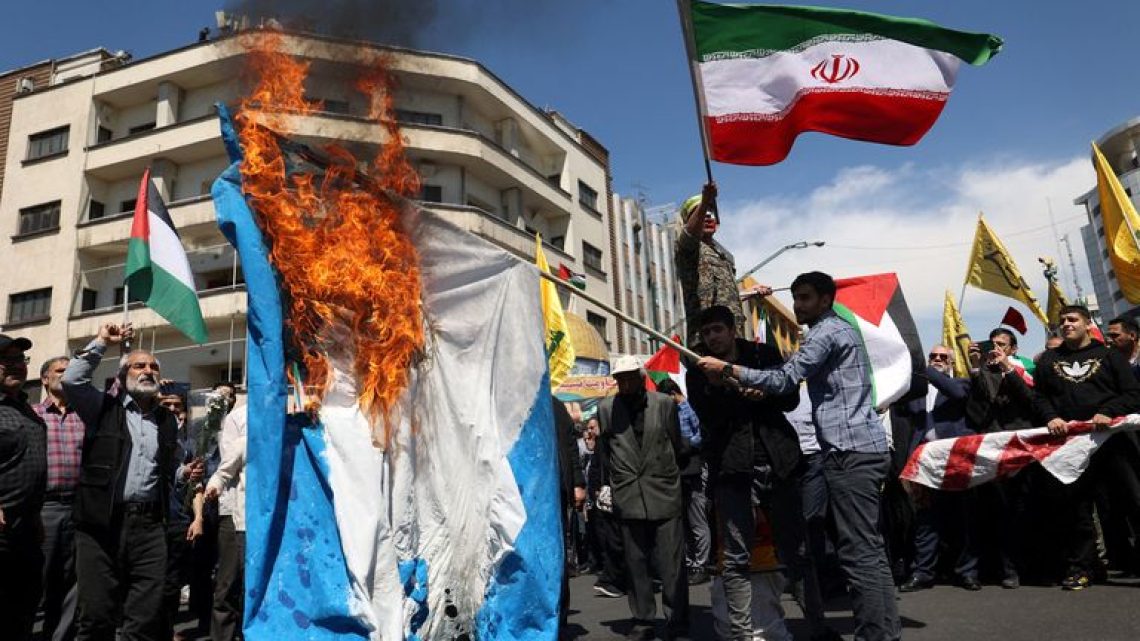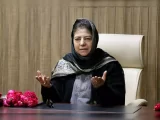
Iran Warns of Larger Attack on Israel Amid Rising Escalation
April 15, 2024In a dramatic escalation of tensions, Iran has issued a stern warning to Israel, cautioning against any retaliation to Tehran’s recent drone and missile attack on Israeli territory. Major General Mohammad Bagheri, Iran’s armed forces chief of staff, delivered the warning on Sunday, asserting that Iran’s response would be significantly larger if Israel chooses to retaliate. Furthermore, Bagheri warned that any support from the United States for Israeli military action against Iran would result in the targeting of US regional bases.
The recent exchange of hostilities stems from a series of events, beginning with Israel’s bombing of Iran’s consulate in Syria’s capital, Damascus, on April 1. The Israeli airstrike resulted in the deaths of seven members of the Islamic Revolutionary Guard Corps, prompting Tehran to vow retaliation. This retaliation manifested in Iran’s first direct attack on Israeli territory, involving explosive drones and missiles launched late on Saturday.
Addressing the nation via state TV, Major General Bagheri emphasized the gravity of the situation, declaring that Iran’s military operations had concluded but warning of a forceful response if provoked further. He claimed that Iran had successfully targeted two Israeli military bases during the attack.
The commander of the Islamic Revolutionary Guard Corps, Major General Hossein Salami, echoed Bagheri’s sentiments, asserting that Iran had entered a new phase in which any aggression against its interests or citizens would be met with reciprocal measures from Iranian territory.
Meanwhile, Israel reported that it intercepted the majority of the over 300 drones and missiles launched by Iran, with the Israeli military remaining fully operational and considering potential follow-up actions. Rear Admiral Daniel Hagari, chief military spokesperson for Israel, described Iran’s actions as “very grave” and warned that they risked escalating tensions in the region.
The repercussions of the exchange of fire between Iran and Israel have reverberated across the Middle East, raising concerns about further escalation and destabilization. The aerial bombardment was accompanied by explosions heard in the skies above Jerusalem, signaling the gravity of the situation.
The conflict between Iran and Israel underscores the broader geopolitical tensions in the region, with both countries vying for influence and dominance. The longstanding animosity between the two nations has fueled a series of proxy conflicts and covert operations, with each side seeking to assert its strategic interests.
As the situation continues to unfold, the international community watches with apprehension, mindful of the potential for further escalation and the impact on regional stability. The involvement of the United States, a key ally of Israel, adds another layer of complexity to the dynamics of the conflict.
Amidst the rhetoric and military manoeuvres, the prospect of diplomatic engagement remains uncertain. Efforts to de-escalate tensions and prevent further bloodshed are imperative, but the path to resolution remains elusive amidst deeply entrenched grievances and competing interests.
In the midst of uncertainty and apprehension, the people of the region brace themselves for the possibility of further violence and upheaval, hoping for a swift resolution to the crisis before it spirals out of control.

